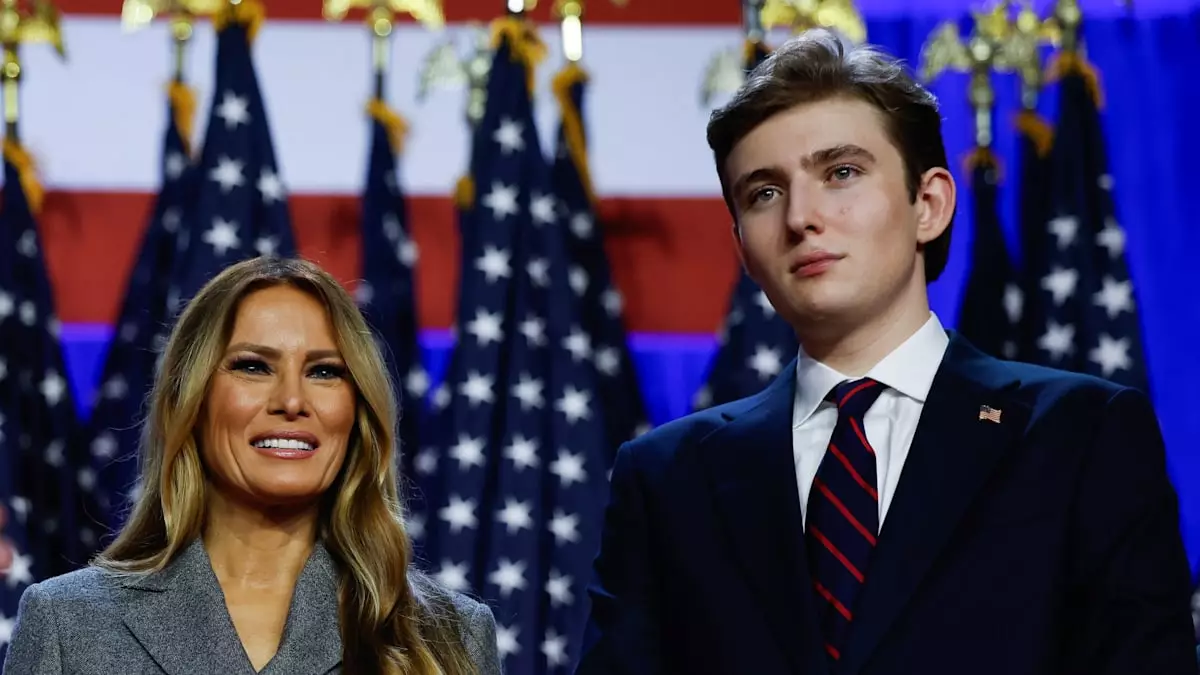In a digital age characterized by rapid information dissemination and sensational rumors, it’s no surprise that First Lady Melania Trump found herself needing to address a particularly persistent speculation regarding her son, Barron. The rumor mill began turning furiously after President Donald Trump launched a scathing critique of Harvard University, accusing it of discrimination and attempting to undermine its diversity policies. Amidst this climate of accusations, some social media users posited that his attacks stemmed from a personal grievance involving Barron’s supposed rejection from the prestigious school. As the internet turned this rumor into a trending topic, Senator Sheldon Whitehouse further fueled the speculation by questioning how many Trumps had faced rejection by Harvard. This moment underscores how easily misinformation can spiral out of control, particularly when celebrity and political figures are involved.
Melania’s Assertive Response
Unable to remain silent amidst the swirl of conjecture, Melania Trump’s communications director, Nicholas Clemens, issued a firm statement debunking the rumor that Barron had applied to Harvard. “Barron did not apply to Harvard,” he asserted, cutting through the noise with clarity and decisiveness. Such a response highlights an essential aspect of this narrative: the tendency of social media to leap to conclusions without verifying the truth. In a world where the line between rumor and fact can blur, it is refreshing when a public figure actively seeks to correct the record and combat misinformation. When discussing topics as critical as educational aspirations, it’s vital to maintain accuracy, especially for a young adult navigating his journey into higher education.
The Shift to NYU and Beyond
Instead of being embroiled in the Ivy League’s competitive admission process, Barron Trump opted for the Stern School of Business at New York University, a choice that surprised many due to the family’s history with other illustrious institutions. President Trump confirmed his son received acceptances from multiple colleges before making this decision, stating, “He’s a very smart guy, and he’ll be going to Stern.” By highlighting the depth of choice accessible to Barron, the President took a moment to showcase his son’s intelligence and agency. In a landscape where college reputation is often mistakenly prioritized over personal fit, Barron’s decision to attend NYU reflects a thoughtful and deliberate selection of an institution that aligns with his ambitions.
College Life Under a Spotlight
Amidst all this, Melania offered insights into the challenges Barron faces as a college student in such a public family. “His experience at college – it’s very different than any other kid,” she remarked, acknowledging the complexities of navigating normal student life while under constant scrutiny. The blend of familial expectations, public interest, and the sheer weight of historical context adds layers of complexity to Barron’s university experience. Melania emphasized, however, that Barron possesses a strong sense of self and understands that his circumstances differ from those of his peers. This acknowledgment of his unique situation paints a picture of resilience, one characterized by the ability to thrive even when the spotlight feels particularly harsh.
Barron’s Political Engagement
Intriguingly, Melania also suggested that Barron plays a crucial role in engaging with the politically influential Gen Z demographic. “He knows his generation,” she claimed, showcasing her pride in her son’s knowledge of current affairs. The notion that he can advise his father about connecting with younger voters through his own lived experience reflects a refreshing perspective on familial dynamics within the political arena. Far from being a passive participant, Barron emerges as an active agent, capable of bridging the generational divide in political discourse. As digital natives, Gen Z often engage differently from their predecessors, steering the conversation toward new platforms and modes of interaction. By recognizing Barron’s influence, Melania illuminates a new facet of his identity—one that transcends mere lineage to become an advocate for change and connection within his generation.
In an era where familial ties often define one’s identity, the interplay of narrative, rumor, and personal agency reveals a compelling portrait of Barron Trump as he carves his own distinct path.

